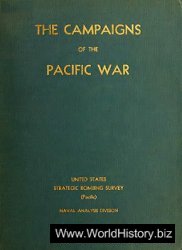(1226-1285). Count of Anjou and king of Sicily. The brother of Louis IX, Charles was intended for a career in the church, but the death of another brother, Jean, transformed his life. In 1246, the crown decided to grant Charles an apanage of the counties of Anjou and Maine, originally intended for Jean. Earlier that year, Charles had married Beatrice de Provence, a marriage that gave him effective, although theoretically temporary, authority in the county of Provence. Charles thus became an important territorial prince in both northern and southern France. He made several efforts to consolidate and expand his authority. For example, after his return in 1250 from his brother’s first crusade (124854), he intervened in a succession crisis in Hainaut but failed to secure the county for himself (Treaty of Peronne, 1256). He was more successful in maintaining his authority in Provence despite the fierce independence of key Provengal cities, especially Marseille, reduced by Charles to submission in the later 1250s, and the vigorous, sometimes military, efforts of his mother-in-law and his wife’s sisters, the queens of England and France, to secure their rights in the county after Beatrice’s death.
The main theater of Charles’s operations was Italy. It was he who accepted the invitation of the papacy to deliver the Holy See from the Hohenstaufen threat in southern Italy and Sicily in the 1260s and, in doing so, carved out a huge zone of influence for himself in the central Mediterranean. Besides defeating the Hohenstaufen and becoming king of Sicily in 1266 (though resistance continued until 1268), he became the effective ruler (senator) of Rome, imperial vicar in Tuscany, protector and governor of several important north Italian towns, overlord of Albania, and, after he took command of his brother’s second crusade (1270), the possessor of important concessions in Tunisia.
In 1277, Charles secured the rights of Marie of Antioch to the throne of the kingdom of Jerusalem, a symbolic indication of the scale of his ambitions in the Mediterranean. Charles also began seriously to make preparations for the invasion of the Greek empire, which had recently been reconquered by the Paleologoi after the Frankish domination (1204-61) following the Fourth Crusade. He was thwarted in this final design by trouble in Sicily, the great nativist uprising (1282) known as the Vespers. Moreover, the king of Aragon, whose marriage to a Hohenstaufen princess gave him claims in Sicily, supported the uprising. French royal aid to Charles, to counter that support, culminated in the crusade against Aragon (1285), during which King Philip IiI of France, Charles’s nephew, perished. Charles himself died early in the same year, leaving a much less able son as his successor and a tangle of problems not fully resolved until the end of the Middle Ages.
William Chester Jordan
[See also: ANJOU, HOUSES OF; SICILIAN VESPERS]
Baratier, Edouard, ed. Histoire de la Provence. Toulouse: Privat, 1969.
Jordan, Edouard. Les origines de la domination angevine en Italie. Paris: Picard, 1909.
Richard, Jean. Saint Louis: roi d’une France feodale, soutien de la Terre Sainte. Paris: Fayard, 1983.
Runciman, Steven. The Sicilian Vespers: A History of the Mediterranean World in the Later Thirteenth Centaury. Cambridge: Cambridge University Press, 1958.




 World History
World History

![The Battle of Britain [History of the Second World War 9]](https://www.worldhistory.biz/uploads/posts/2015-05/1432582012_1425485761_part-9.jpeg)







